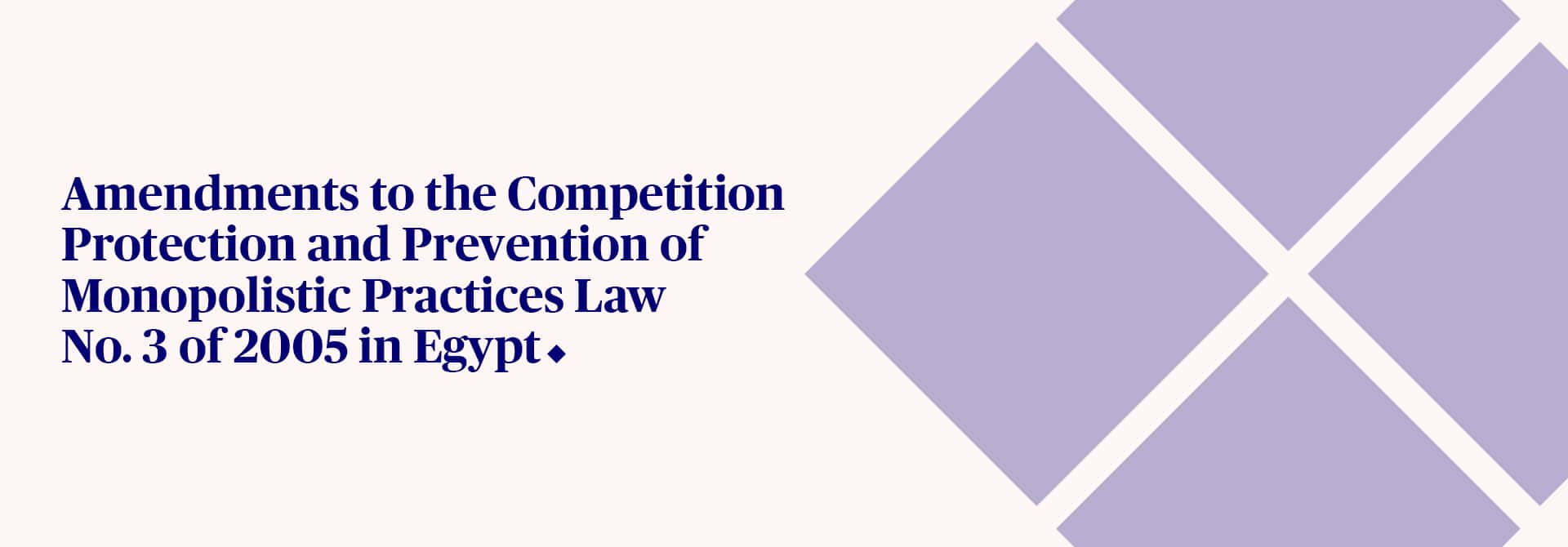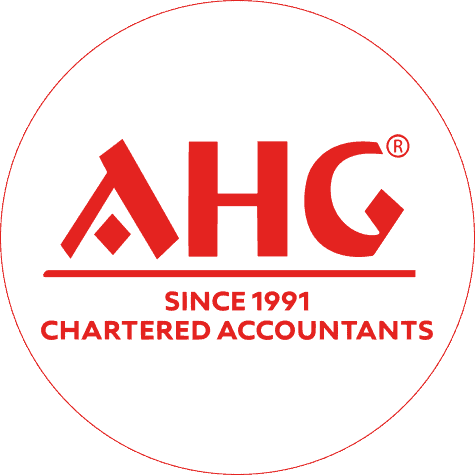Amending the Competition Protection Law in Egypt 2022/2023
The Arab Republic of Egypt has recently tightened control over companies with a new decision, whether the company is a joint stock company or another form of company, through a government agency called the Competition Protection law in Egypt. Amendment of some provisions of the Competition Protection law and Prevention of Monopolistic Practices Law No. 3 of the year 2005 on December 29, 2022. And was issued the amended Competition Protection Law in Egypt 175 of 2022 (the Amendment Law), which is concerned with the new closure, which was long-awaited before the closure. It is the illustrative system on transactions that constitute an economic focus to ensure that no changes occur or prevent, restrict or harm freedom of competition.
You can find out the executive regulations of the Competition Protection Law from here
The Competition Protection Law in Egypt before the amendment and before the agency established protection provided only that a notification should be sent from the general perspective after the closure of the commercial operations or commercial activities of the company, which includes parties whose annual sales volume is more than 100 million Egyptian pounds in particular.
In light of the existence of the new system, the deal that constitutes an economic focus and commercial activities that exceed the business volume limits set by the Competition Protection Law requires amending the law, which is obtaining approval and suspending the conclusion of a contract or agreement on any closure or merger from the Egyptian Competition Authority or Authority ECA.
Information about the Authority for the Competition Protection Law in Egypt and Prevention of Monopolistic Practices
The Competition Protection law issuing Authority is a body that reports directly to the Prime Minister, and it was established to act as the body responsible for implementing the Competition Protection Law in Egypt and following up on the state’s markets and ensuring that the parties or companies operating in the market practice economic activities in a manner that does not limit, restrict or harm competition. The agency also works to spread and clarify the culture of competition, and supports competition policies.

The Competition Protection law issuing Agency was established at the same time as the necessity or validity of the Competition Protection law and Prevention of Monopolistic Practices Law promulgated by Law No. 3 of 2005. The Competition Protection Agency and the Prevention of Monopolistic Practices are based in Greater Cairo, specifically in the Smart Village, Cairo-Alexandria Desert Road, and there is no other branch of the agency.
Who are subject to the amended Competition Protection Law in Egypt ?
The Competition Protection Law applies to all natural and legal persons and entities operating in the market in general. If you want to know more about the definition of persons, please refer to Article 2-A of the law and Article 5 of the executive regulations of this law.
The provisions of this competition protection law also apply to everything committed abroad if it results in limiting, restricting or harming the freedom of competition in Egypt, which are considered crimes according to the provisions of the Competition Protection law and Prevention of Monopolistic Practices Law. You can refer to Article 5 of the Law.
What are the duties of the Competition Authority?
The law determines the functions of the agency, which seek to achieve the goal of its establishment, and include the following:
- Examining complaints, implementing research initiatives, and providing advisory opinions.
- Create a database on the economic activity of the state.
- Take the decisions specified by the executive regulations of this law and established by the Agency when a violation is proven.
- Express an opinion on any draft law and specify the executive regulations for this law.
- Issuing a bulletin on an ongoing basis about the decisions, recommendations or actions taken by the Agency.
- Preparing and submitting an annual report on the activities of the agency, as well as the future plan.
There are several steps that the device takes to check any condition, which are as follows
- Calling and receiving the complainant, either in the case of submitting the communication through e-mail or fax, the complainant is contacted and summoned to the headquarters of the agency.
- Notifying the Executive Director of the Agency about the company around which there is a suspicion of limiting the freedom of competition.
- If the complaint is accepted, it will be dealt with seriously, and the communication form will be filled out and submitted to the Executive Director.
- Notify the Chairman of the Board of Directors of the company
- Define the work team
- Examination of the complaint and communication.
- Prepare a final report for the violation
- Submitting the final report to the Chairman of the Board of Directors to take a decision in the submitted case.
The decisions of the board of directors of the agency
- In the event of a violation: In this case, there are mandatory actions on the agency in all cases, and actions that depend on its discretionary authority in each case separately, so the agency’s board of directors is committed to taking administrative measures represented in assigning the violator to amend his conditions and remove the violation, and he remains the discretionary authority to request Initiation of a criminal case by the Public Prosecution or in reconciliation with the violator.
- In the event of a decision to take precautionary measures or procedures, if no violation has been proven, it shall be decided to stop, that is to stop the prohibited practices that were determined according to the criteria outlined in the executive regulations of this law, which resulted in severe damage to competition in the market or the consumer that cannot be remedied, and this is by the last amendment. in the Competition Protection Act
- If it is not clear whether there is a violation or not, the report is saved and the procedures are followed up. Whoever wants to know the position of proving the existence of a violation or not.
Characteristics of competition protection law in Egypt
The amendment to the Competition Protection Law in Egypt provides many details about the jurisdiction limits, the powers of the ECA, the evaluation test for any of the closed or merged companies, and other details. like :
Under the Competition Protection Act amendments, transactions that meet any of the following asset value limits or limits must be notified to the ECA.
- If the total sales of the company or one of the companies in Egypt exceeds 900 million Egyptian pounds (about 37 million US dollars), and the sales volume of persons in Egypt for at least two persons, i.e. companies or a partner, exceeds 200 million Egyptian pounds (about 8.2 million US dollars).
- If the combined global turnover of the parties exceeds 7.5 billion Egyptian pounds (about 305 million Euros) and one of the parties to the transaction has exceeded the volume of sales in Egypt to at least 200 million Egyptian pounds (about 8.2 million US dollars).
The Environmental Protection Agency reserves the right to have the agency in the event that the limitation of freedom of competition and interference in the transactions and operations of all companies is proven in accordance with the conditions determined by the executive regulations of this law assembled and approved, and on the condition that the turnover exceeds these limits within a period of time determined by the Board of Directors of the Agency, which is within a year from the date of closure. If there are indications that the aforementioned transaction is in violation, which would limit the freedom of competition.
- Notification is mandatory for transactions listed below provisions of competition law and which meet jurisdictional boundaries. Deposit pending, i.e. the company’s board of directors must obtain approval from the ECA before closing.
- If the total sales of the parties in Egypt exceed 900 million Egyptian pounds (about 37 million US dollars) and the sales volume of at least two people (for each of the companies or parties) exceeds 200 million Egyptian pounds (about 8.2 million US dollars).
- If the combined global trading volume of the parties exceeds 7.5 billion Egyptian pounds (about 305 million Euros) and one of the parties to the transaction has exceeded its sales volume in Egypt of 200 million Egyptian pounds (about 8.2 million US dollars).
The members of the Board of Directors must submit the notice of the merger or deny any changes to the company’s capital or the company’s debts before executing or completing the transaction. This was clarified by stipulating that the notification must be submitted immediately after signing a letter of intent or a memorandum of understanding, or when the parties enter into serious negotiations.
If this is not done, the violator is assigned to amend his situation and remove the violation before the signing of the violating agreement or contract within a period of time determined by the Board of Directors of the Competition Protection and Prevention of Monopolistic Practices established in accordance with the provisions of Competition Protection Law No. 3 of 2005.
The test adopted by the ECA is broad: an ECA can prevent concentration if it would prevent or harm free competition. More clarity should be provided regarding the objective evaluation based on the manner determined by the executive regulations issued by the Board of Directors of the Competition Protection Authority.
The maximum fee stipulated in the amendments is 100,000 Egyptian pounds (about 4,000 US dollars) according to the law regulating the use of payment methods.
Authorized firms are firms that carry out activities that fall under the jurisdiction of the Financial Services Authority (FSA). It is outside the scope of ECA. However, while the approval is issued by the FSA, the FSA is required to obtain the opinion of the ECA before issuing its decision.
Law enforcement for these companies that engage in activities regulated by the Central Bank of Egypt are also excluded. These transactions are governed by a completely independent set of rules.
Approval deadlines:
The first stage
The evaluation may take up to 30 business days. This period can only be extended once for 15 working days if the parties make compensation.
The second phase
The evaluation can take up to 60 working days and may also be extended once for 15 working days if the parties provide compensation.
Whether or not an ECA would be able to stop the clock if the file appears incomplete is unclear, but this may be made clear in the implementing regulations.
Evaluation powers
Under the amendments, the ECA has various powers including, approving transactions unconditionally, or blocking transactions

